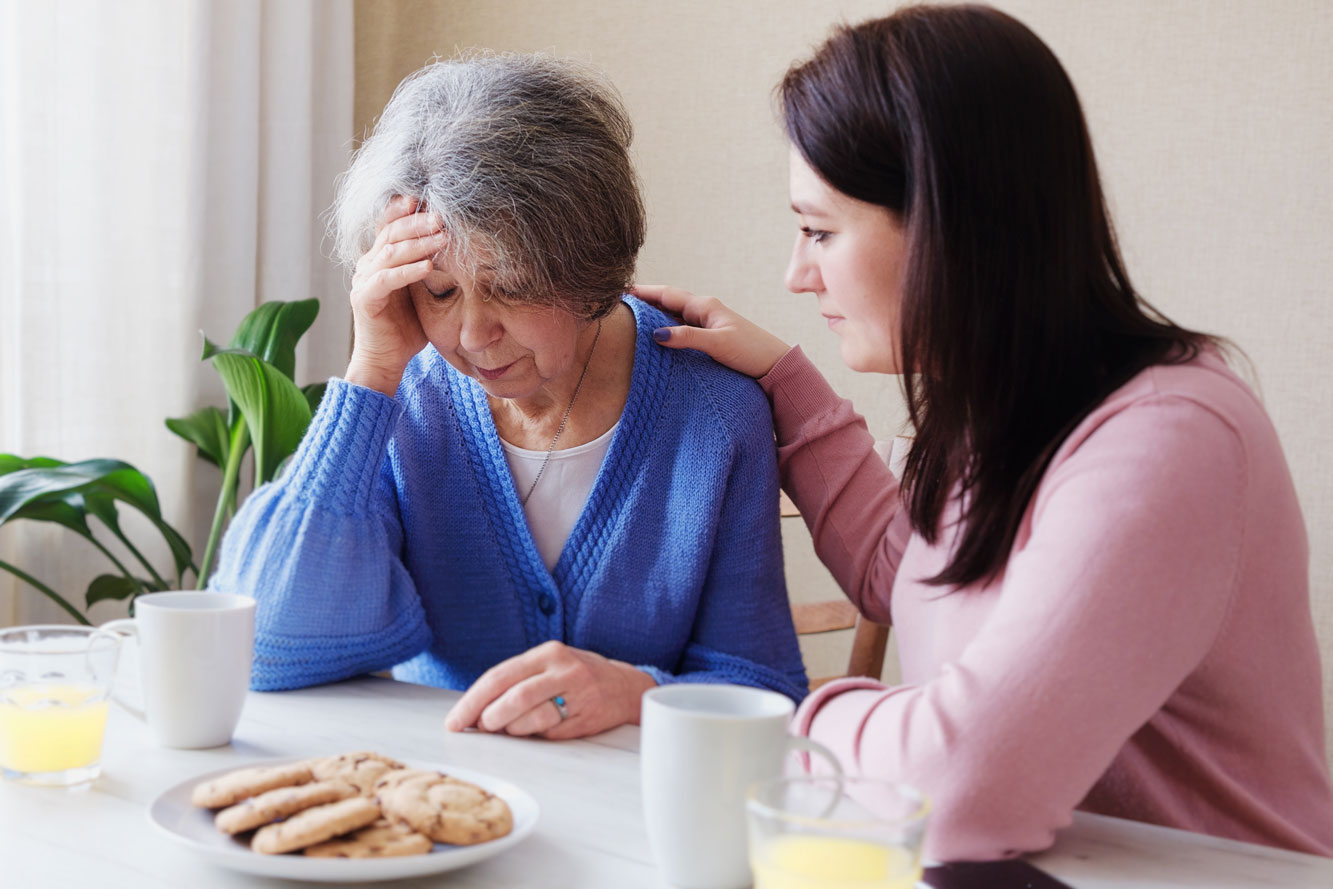 Hallucinations, illusions and delusions
Hallucinations, illusions and delusions
Sometimes in Parkinson’s people can experience symptoms known as hallucinations, illusions and delusions. Not everyone will experience these, but this page contains information for those who want to know more.
- A hallucination is where someone experiences something which isn’t there. Commonly in Parkinson’s these are visual in nature.
- An illusion is when the brain misinterprets something; for example, patterns on carpets or wallpaper may look like they are moving, a coat hanging on the back of a door may look like a person.
- A delusion is a belief in something that is not true, and it can be difficult to change. Delusions may involve jealousy and paranoia, even about trusted loved ones.
Sometimes these symptoms can be very mild, other times they can be frightening, vivid and convincing and require specialist treatment. It is important to talk to your Parkinson’s team or GP if you experience these problems as there may be simple things that can be done to resolve the symptoms.
What are some of the common causes of hallucinations, illusions and delusions?
- Eye problems and bad lighting
- Delirium – an acute state of confusion associated with an illness, for example an infection
- Many medications can cause these, including some Parkinson’s medication
- Severe depression or sleep deprivation can rarely cause people to experience these symptoms.
- Parkinson’s itself – especially later in the condition
- They can be a sign that someone has underlying memory problems or dementia.
- It is often a combination of reasons.
What can be done if you are experiencing hallucinations, illusions or delusions?
- Don’t panic.
- Talk to your Parkinson’s specialist team or GP. Don’t wait for your next appointment, there may be simple things that they can do such as adjusting doses or time of medication that can make a big difference.
- Try to work out if there is a pattern to when they trouble you e.g., a specific time of day.
- Try to focus your attention on something else such as reading or watching television, to try to distract yourself.
- Try to keep good sleep habits
- Avoid triggers (e.g., improve the lighting in a shadowy corner where you often see funny things)
- Consider contacting your optician for an eye test if you have not had one recently.
- Talk to your family or carers about what you are experiencing.
Tips for family, friends and carers of people experiencing hallucinations, illusions and delusions
- Even if the hallucinations, illusions or delusions are not upsetting the person with Parkinson’s, contact their specialist team or GP. Do not wait for the next appointment to discuss them.
- If the hallucinations, illusions or delusions are very severe, telling the person experiencing them that they are not real may lead to distress and conflict. Try instead to acknowledge their experience and distract them from it, without reinforcing it.
- Anxiety can make symptoms worse. Try to find ways to help the person relax.
- If there are concerns about your loved one’s safety you may wish to approach the GP or Parkinson’s team to see what interventions can be put in place to support them.
- Sometimes the person with hallucinations or delusions may believe that you are part of it. Some people find it helpful to have a pre-agreed “code” to help reorientate them and bring them back to the present, such as showing them a familiar object or photograph.
- Giving support to someone with hallucinations, illusions or delusions can be tiring. Get support for yourself by talking to friends, your GP or a counsellor. Some people find it useful to talk to people going through similar experiences. You will be able to find people affected by Parkinson’s through your local Parkinson’s UK group or the Parkinson’s UK online forum. Our support services | Parkinson’s UK
Adapted from Parkinson’s UK advice on hallucinations and delusions: Hallucinations and delusions | Parkinson’s UK
vision, apparition, confusion, seeing things